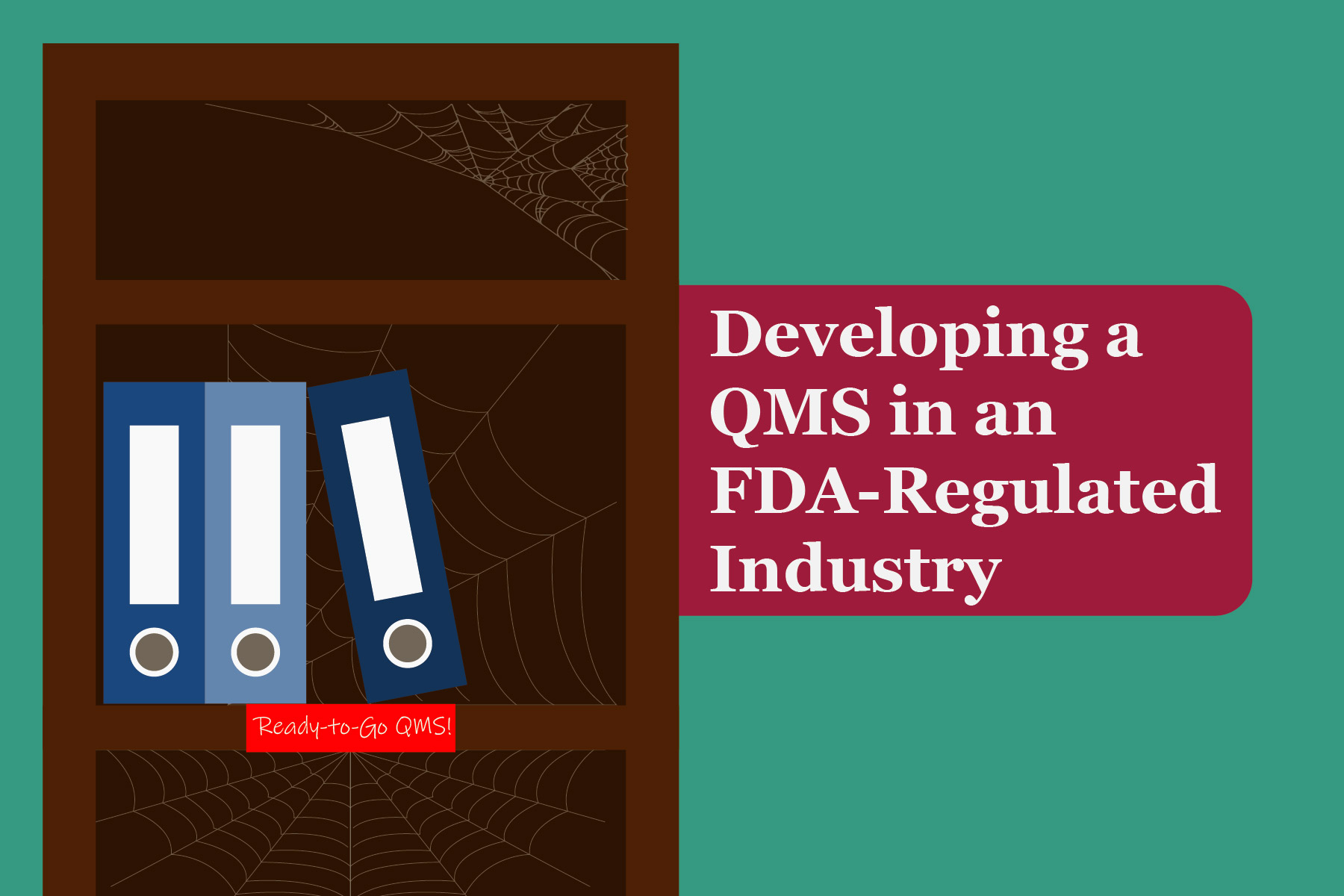No matter what scope your product falls under (medical device, drug, biologic, IVD) the regulatory requirements for your Quality Management System are strict. The FDA established its various Codes of Federal Regulations to enforce that a QMS is not just a “nice-to-have” for the life-science industry, it is the law. To me, however, a QMS should do more than just check a box for the FDA. Your QMS should be optimized towards your actual operations, to ensure it fulfills its purpose of supporting the several GxP standards, and ultimately facilitates your organization in creating safe and effective products.
A simple Google search would show you an abundance of options for off-the-shelf QMS’s. These are usually advertised as a full suite of ready to implement procedures that are compliant with an array of regulatory requirements and international standards. While these procedures may check the box of compliance, assuming they actually are compliant with the regulations, I have seen numerous instances of these off-the-shelf QMS’s causing more headaches for firms. The main reason is that the FDA tells you what to implement, but not how to implement it. So, for example, when you purchase a CAPA procedure you are stuck with whatever the author of that procedure thinks you should do in a CAPA process, without considering your firm’s actual scenario. If that CAPA procedure is too strict you could run into “death by CAPA”, if the procedure is not strict enough you could be letting serious quality issues go unnoticed. To use the Goldilocks Principle, your QMS must be “just right”, otherwise you will run into serious compliance issues.
So, how do you develop an optimized QMS? It starts by having a thorough understanding of your product and which regulatory requirements and international standards applicable to it. Once you have that you need to start developing your procedures, the framework of your QMS. Developing a QMS infrastructure takes a balance of both understanding the previously mentioned requirements, and how your organization applies them. A review of the citation sources for 483’s that the FDA issued in FY 2020 shows you that most are due to “lack of or inadequate procedures”.1 While developing documentation seems fairly straightforward, there are a lot of ways you can fall into the trap of “inadequate” procedures.
Developing a QMS in an FDA-regulated industry is not always for the faint of heart. It takes not only a complete understanding of the regulatory requirements and international standards but also an alignment with your organization’s processes. EMMA International has helped countless clients by supporting their QMS development with our proprietary methodology, CLIC®. Our team of experts has experience both developing QMS’s from the ground-up and assisting firms in QMS remediation efforts. If you need help developing, implementing, optimizing, or maintaining your QMS, EMMA International is available 24/7. Call us at 248-987-4497 or email info@emmainternational.com to get connected with our team of experts today!
1FDA (Nov 2020) Inspection Observations retrieved on 02/02/21 from: https://www.fda.gov/inspections-compliance-enforcement-and-criminal-investigations/inspection-references/inspection-observations






